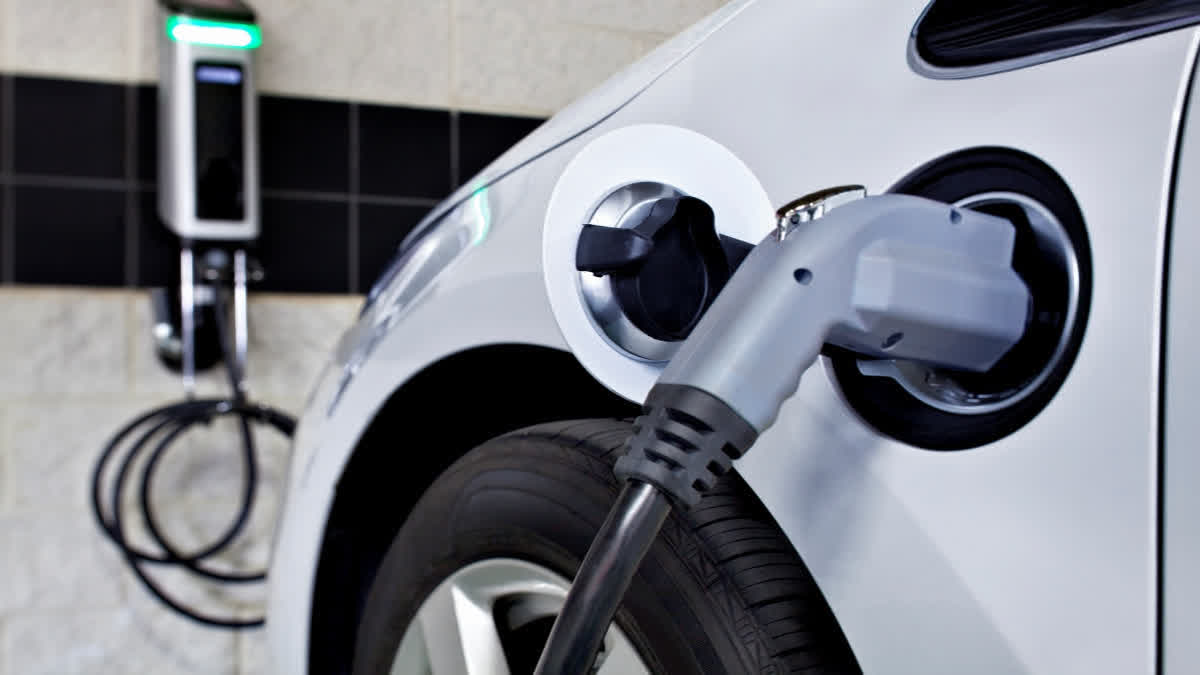New Delhi: The Economic Survey 2024-25 tabled in the Parliament by Finance Minister Nirmala Sitharaman on Friday stated that mitigating road transport emissions, which comprise nearly 75 per cent of the emissions from the transportation sector, is critical to India achieving its Net Zero goals by 2070.
“Electric mobility is an important element in India’s path to Net Zero. India has made impressive strides in promoting the domestic manufacture of Electric Vehicles (EV). However, to sustain the growth momentum, there are some important considerations to keep in mind,” it said. For instance, according to the economic survey, manufacturing an Electric Vehicle, relative to a conventional car, requires nearly six times more minerals to produce, most of which are utilised in producing the EV battery. “This is an important consideration as many minerals crucial to EV manufacturing are scarcely available or processed in India while simultaneously being concentrated in very few countries. The Ministry of Mines has analysed the critical minerals vital to India’s economic security and found that they are currently at high risk of supply disruptions,” the report said.
The Economic Survey said that the pursuit of India’s vision to decarbonise road transportation has been accompanied by impressive strides in the promotion of domestic manufacturing facilitated by schemes such as FAME India, the Production Linked Incentive (PLI) Scheme for Auto Components, and the Scheme for Promotion of Manufacturing of Electric Passenger Cars in India (SPMEPCI) among others. “These schemes demonstrate the Government of India’s awareness of the need to build domestic supply chains. These are good foundations. Future policies will have to broaden their scope of coverage in a manner that adapts to the growing needs of the EV industry. As demand for EVs is expected to grow, dependence on imported components such as DC motors, e-motor magnets, and other electrical parts will likely rise. Leading EV manufacturers have noted an increasing proportion of Chinese imports in their total material expenditures, reflecting a significant dependence on China for certain resources and technical knowhow,” it said.
Going forward, the report said, policies for electric vehicles must focus on de-risking supply chains by promoting a more self-reliant ecosystem powered by increased R&D in advanced battery technologies, such as Sodium-ion and Solid-State Batteries. “Securing intellectual property in this domain can prove invaluable. Additionally, facilitating investment in battery recycling infrastructure can yield greater long-term gains for the Indian automotive sector. In the interim, PLI Schemes can also reward the making of EV cells (Lithium-ion cells), as most manufacturing and value addition happens up to the cell-making stage. Furthermore, India must aim to establish technology transfer agreements with other nations that are also seeking to diversify their supply chains. Partnerships with other aspiring nations can help distribute the high costs of securing a comparative advantage in the global market,” the economic survey stated.



